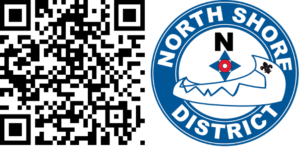
Who is Mr. Soap? Just one of the most important names you will encounter in Scouting. Paul Soap is a helpful mnemonic for the 8 Methods of Scouting in Scouts BSA that support the Vision, Mission, and Aims. The methods are not listed in any specific order of importance, all are equally important, but the mnemonic will help you remember them. Follow along in this issue to see them all.
P = Patrols
“The patrol method gives Scouts an experience in group living and participating citizenship. It places responsibility on young shoulders and teaches Scouts how to accept it.“ The Patrol Method is the backbone of how a troop works.
A= Associate with Adults
You are the example! “Scouts learn a great deal by watching how adults conduct themselves. Scout leaders can be positive role models… listen to the Scouts, encourage them, and take a sincere interest in them can make a profound difference in their lives.” During Weekend 2 you will get to associate with several outstanding young adults from Troops and Crews around the council. Please talk to them and ask questions like you would of any staff.
U = Uniform
The uniform provides an identity: it immediately identifies you as a Scout(er). It creates equality: everyone looks uniform. And it provides a place to display recognition: it’s your resume. “Show me a poorly uniformed troop and I’ll show you a poorly uniformed leader.” – Baden-Powell.
L = Leadership Development
“Understanding the concepts of leadership and becoming a servant leader helps a Scout accept the leadership role of others and guides them towards participating citizenship and character development.” From Assistant Patrol Leader to Senior Patrol Leader, every scout has an opportunity to experience the role of leadership. Training courses like Introduction to Leadership Skills for Troops (ILST) and National Youth Leadership Training (NYLT) teach the tools of leadership.
S = Scouting Ideals
The oath, law, motto, and slogan are indelibly linked to Scouting. Scouting’s ideals support BSA’s vision and mission.
O = Outdoor Programs
The word Scouting is 6/8ths outing! How many times have you heard that? “Being close to nature helps Scouts gain an appreciation for God’s handiwork and humankind’s place in it. The outdoors is the laboratory for Scouts to learn ecology and practice conservation of nature’s resources.” The point also being that it’s not meant to be as easy as sitting indoors or at home. Cooking, pioneering, and other “skills and activities practiced at troop meetings come alive with purpose”.
A = Advancement
It is very important to remember that Advancement is only one of the eight methods. “The Scout plans their advancement and progresses at their own pace as they meet each challenge.” Attaining Eagle is not in the BSA vision or mission. For whatever rank a scout attains: “The steps in the advancement system help a Scout grow in self-reliance and in the ability to help others.”
P = Personal Growth
Each scout progresses at their own pace during their years in Scouting. “As Scouts plan their activities and progress toward their goals, they experience personal growth. The Good Turn concept is a major part of the personal growth method of Scouting. Young people grow as they participate in community service projects and do Good Turns for others. Probably no device is so successful in developing a basis for personal growth as the daily Good Turn.“

And finally, Mr. Soap’s middle initial is T. This little-known fact is in the Troop Leader Guidebook Volume 2: the 9th method of scouting is Time. “A weekend campout or a week at summer camp is not enough to transform… But when the weeks turn into months, and the months turn into years, incredible transformations happen.”

